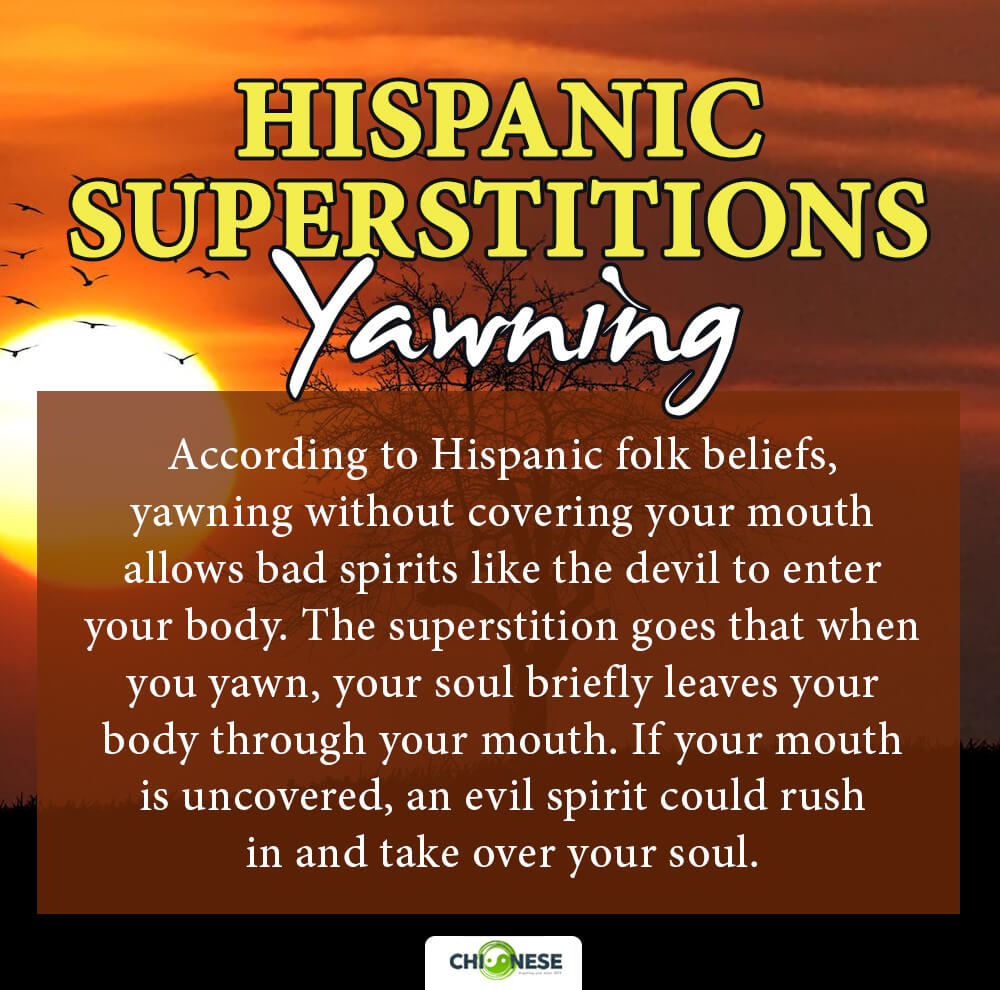You probably grew up hearing all kinds of superstitions from your abuela, tías, or that one cousin who always swore she felt something in the air. But how many of those stories have you ever questioned? Hispanic superstitions come from centuries of blended cultures, folklore, colonial influence, and generational storytelling.
Most of them weren’t created to scare children (even though some absolutely did). They were ways to explain the unknown, protect families, or avoid bad luck in times when fear and faith shaped daily life.
Here’s what those famous Hispanic superstitions really mean and where they come from.
Where Hispanic Superstitions Come From
Hispanic folklore is a cultural cocktail: Indigenous beliefs, Catholic traditions brought by the Spanish, and old European myths all mixed together. Many Hispanic superstitions center around protection, from envy, spirits, illness, or misfortune, because that was how families made sense of the unpredictable world.
Even if you’re not superstitious today, you’ve probably heard an elder say, “Estas cosas no existen… pero por si acaso.” (“These things don’t exist… but just in case.”) And honestly? That’s the attitude most of these traditions came from.
Mal de Ojo (The Evil Eye)
Mal de ojo is one of the most widespread Hispanic beliefs. It says someone can harm you, especially babies, just by looking at you with envy or bad intentions.
The azabache bracelet, usually a red string with a black jet stone, is the classic protector. It “absorbs” the negative energy before it reaches you. Whether you believe it or not, nearly every Hispanic family has had one somewhere in a drawer.
Knocking on Wood (Tocar Madera)
This comes from an ancient belief that spirits lived inside trees. Knocking on wood was a way to keep them from hearing your good news and messing it up. Even today, people instinctively do it: “Todo va bien… toco madera.”
Tuesday the 13th (Martes 13)
Forget Friday the 13th, in Hispanic cultures, martes trece is the unlucky one. Tuesday is ruled by Mars, the planet of chaos and conflict, so traditionally people avoid weddings, travel, or big decisions on that day.
Owls (Lechuzas)
Owls are associated with witches, omens, or death in many Latin American countries. Hearing one hoot outside your window at night? Older generations might whisper that it’s warning of something approaching.
Crows (Cuervos)
Crows carry similar symbolism: bad news, tragedy, or death. Seeing three together is traditionally seen as a warning. It’s grim, but it’s a superstition that has survived centuries.
Broken Mirrors (Espejos Rotos)

Breaking a mirror is said to bring seven years of bad luck. In many Hispanic households, mirrors were believed to reflect not just appearance, but spirit. A cracked mirror created an opening for unwanted energies or spirits to come through.
Spilling Salt (Derramar Sal)
If you spill salt, you toss a pinch over your left shoulder to block bad luck. Elders say the devil stands behind the left shoulder, and the salt blinds him so he can’t follow you.
Sweeping at Night
Many Hispanic families insist that sweeping after dark pushes away prosperity. The belief is that you’re accidentally sweeping out luck, blessings, or even the family’s wealth.
Yawning Without Covering Your Mouth
Some say yawning opens the “doorway” of the soul. If you don’t cover your mouth, an evil spirit, or even the devil himself, could slip inside. No wonder abuelas are strict about manners.
Whistling Indoors
Whistling inside the house is believed to scare away good fortune or attract wandering spirits. Some say it invites poverty; others say it calls supernatural forces.
Putting Your Purse on the Floor
Putting a purse on the floor is a big no. It symbolizes letting your money drain away. Many Hispanic households still remind young women not to do it.
Hanging Garlic
Garlic has been used for centuries to protect against evil spirits and harmful energies. Hanging garlic near the entrance of a home is said to keep negativity away.
Chamomile Bath
Chamomile isn’t just for tea. Chamomile baths are used for cleansing energy, protection, and removing jealousy or bad vibes.
Red Underwear on New Year’s Eve
Wearing red underwear on New Year’s Eve is believed to bring love, passion, and a lucky romantic year ahead.
Dropping a Broom
Accidentally dropping a broom may signal unexpected guests or bad news coming soon.
Before Luck Turns…
Hispanic superstitions are more than spooky stories. They’re pieces of cultural history. Even if you don’t take them literally, they connect generations, carry symbolism, and keep traditions alive.
As many abuelas say:
“No tienes que creer… pero tampoco desafíes la suerte.”
(“You don’t have to believe… but don’t tempt fate either.”)












